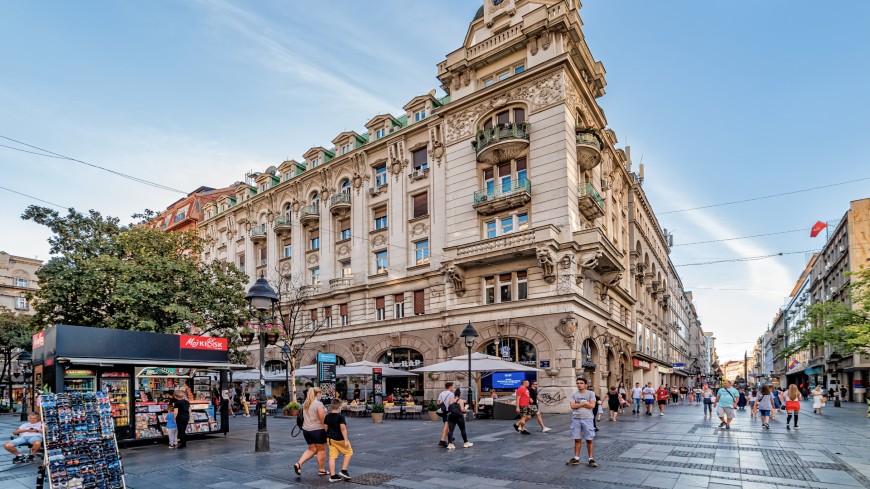On 3 April 2022, presidential and early parliamentary elections were held in Serbia, observed by international observers, among them the Parliamentary Assembly of the Council of Europe. On the same day, local elections in Belgrade and 12 other municipalities were held; they were observed by the Council of Europe’s Congress of Local and Regional Authorities.
Fundamental freedoms were largely respected in Serbia’s 3 April presidential and early parliamentary elections, international observers, including PACE, said in the statement. Voters were presented with diverse political options, but a number of shortcomings resulted in an uneven playing field, favouring the incumbents, international observers said in a statement today. The combined impact of unbalanced access to the media, undue pressure on public sector employees to support the incumbents, significant campaign finance disparities and misuse of state resources resulted in unequal conditions for contestants, the statement says.
Recent legislative changes, adopted following extensive dialogue among the ruling parties and some of the opposition, included some welcome improvements, but key aspects of the electoral process require further reform and implementation, the statement says. While media covered all electoral contestants, most public and private broadcasters with national coverage favoured the incumbent president and the ruling coalition, limiting the opportunity of voters to make a fully informed choice, the observers said.
The elections took place against the backdrop of intense polarisation between the ruling coalition and opposition parties, which had been reflected in an opposition boycott of the 2020 parliamentary elections and numerous public protests between July 2020 and January 2022, international observers noted.
“The recurring cycle of early parliamentary elections led to the creation of a ‘culture’ of early elections, which impacts the efficient functioning of the Parliament, no matter which political forces are in power,” said Aleksander Pociej, head of the delegation from the Parliamentary Assembly of the Council of Europe. “It is regrettable that the public broadcaster and the majority of media outlets were not balanced in their coverage during the campaign.”
As for the local elections held on the same day in Belgrade and other municipalities, the Council of Europe Congress 15-member delegation in its statement recommended conducting local elections separately from elections at the national level to avoid that presidential or parliamentary elections overshadow local issues.
On Election Day, seven Congress teams were deployed to Belgrade, Arandelovac, Smederevska Palanka, Kula and Secanj to monitor the procedures, from opening to closing, in about hundred polling stations. Except some inconsistencies and irregularities, overall, voting was calm and conducted by the boards in the polling stations based on a legal framework considered as generally in line with international standards.
However, the head of the Congress delegation Carla Dejonghe (Belgium) raised several recurring issues already highlighted back in 2016. Polling stations were often overcrowded due to the permanent and extended composition of the polling boards, while the minimum presence of permanent members was not always ensured. She called on the Serbian authorities to optimise the management of polling stations, ensuring, at the same time, transparent monitoring of the elections by party observers. The head of delegation also called for more professional training of poll workers. In order to strengthen the secrecy of the vote, proper polling booths should be introduced instead of cardboard partitions. Polling stations should also be made more accessible for people with disabilities, she stressed.
The Congress delegation witnessed several situations where voters arrived at polling stations with invitations addressed to deceased persons. "The existence of so-called phantom voters on the voters’ lists continues to undermine public trust and confidence in elections and in democracy," warned Ms Dejonghe, calling for an independent audit of the voters’ lists and better coordination between the authorities responsible for updating civil status.
Due to the simultaneous holding of three elections in Belgrade and 12 other municipalities on the same day, voter turnout was high in some places and led to long queues, especially before the polls closed. “The conduct of concurrent elections for different levels of government should be avoided in the future - and a separate Election Day should be dedicated to local and regional self-government to avoid that presidential or parliamentary elections overshadow local issues,” Ms Dejonghe stressed.


